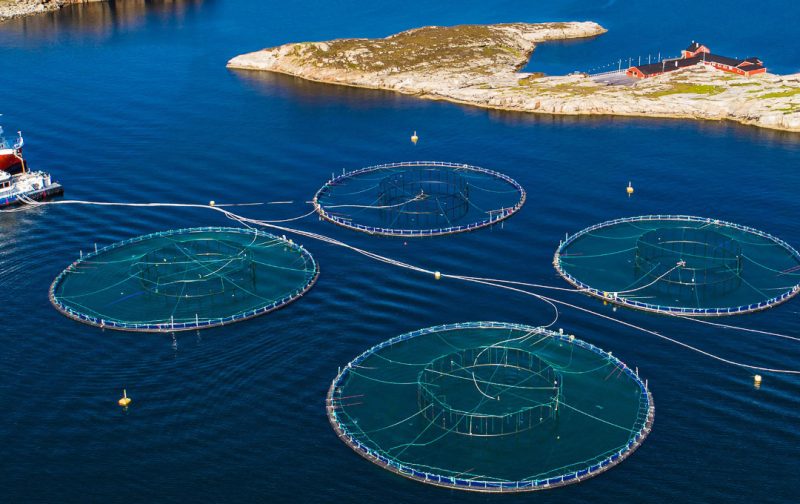Aquaculture industry supports talks to address UNDRIP issues in BC
“We are prepared to do the necessary hard work to find a path forward together in the Broughton Archipelago in keeping with and enacting the principles of the United Nations Declaration on the Rights of Indigenous Peoples.”
The salmon farming (aquaculture) industry in B.C. says it is looking forward to participating in government-to-government discussions to address issues about fish farms in traditional territories in relation to the United Nations Declaration on the Rights of Indigenous Peoples (UNDRIP).
“We are hopeful that this government to government process can develop clarity and a positive pathway forward that will provide business certainty and a solid future for the women and men who work in salmon aquaculture,” said Jeremy Dunn, the executive director of the B.C. Salmon Farmers Association.
“Salmon farmers have a long history of positive relationships with First Nations and have been hopeful to develop one in this area as well,” said Dunn.
Over 40 First Nation and Indigenous communities are now directly or indirectly involved in farming seafood in Canada.
In B.C. salmon farming has a total economic impact of more than $1.1-billion and accounts for more than 5,000 jobs. B.C. salmon farmers work closely with coastal First Nations and have 20 social and economic agreements in place. About 78% of the B.C. harvest is from farms covered under First Nation Agreements.
A group of six First Nations met with the provincial government on Tuesday saying they are concerned fish farms are damaging the health of wild salmon in the area, although there is no conclusive scientific evidence to prove their claims. They also say the aquaculture operations do not have permission to operate in their traditional territory.
After the meeting, a joint statement was issued jointly by Minister of Forests, Lands, Natural Resources Operations and Rural Development Doug Donaldson, Minister of Agriculture Lana Popham, Minister of Indigenous Relations and Reconciliation Scott Fraser, Minister of Environment and Climate Change Strategy George Heyman, and the Mamalilikulla First Nation, ‘Namgis First Nation, Dzawada’enuxw First Nation and Kwikwasut’inuxw Haxwa’mis First Nations
“Following up on a commitment made by Premier John Horgan in October 2017 at the Big House in Alert Bay, representatives from the provincial government met with six First Nations represented by five bands of the Broughton area to discuss the issue of fish farms in their traditional territories.
“Everyone around the table agrees that protecting the sustainability of wild salmon and other key resources – which are the foundation of their Indigenous culture, way of life and future – is of utmost importance. These resources are also vital to all British Columbians.
“The basis for this meeting was to jointly honour the implementation of the United Nations Declaration on the Rights of Indigenous Peoples and to confirm a commitment to a consent-based government-to-government process focused on the current fish farm operations in the Broughton area, and the protection of wild salmon.
“We have agreed to immediately embark on government-to-government discussions to address the issues and concerns about fish farms in the Nations’ traditional territories, based on free, prior and informed consent.
“Today’s meeting was the next step toward finding solutions together, which will include shared priorities and decision-making.
“We are prepared to do the necessary hard work to find a path forward together in the Broughton Archipelago in keeping with and enacting the principles of the United Nations Declaration on the Rights of Indigenous Peoples,” the statement read.
Marne Harvest, which has operations in Broughton Archipelago and has been the target of illegal occupation by protestors, said it has formal agreements in place with 15 of the 24 nations in the territories where it has aquaculture operations.
The company also encouraged the government to review Indigenous rights and title over the matter to provide clarity to both groups.

